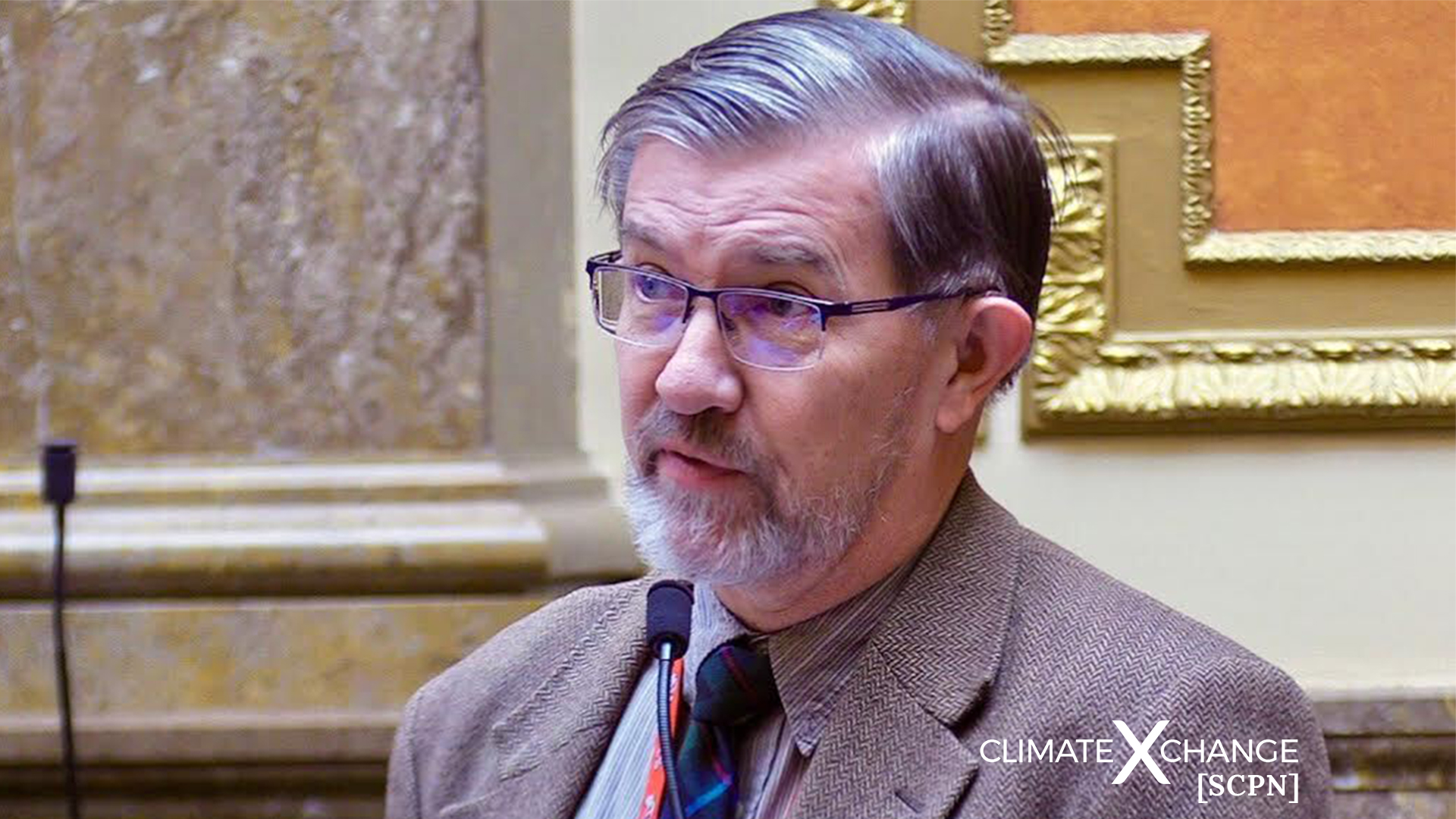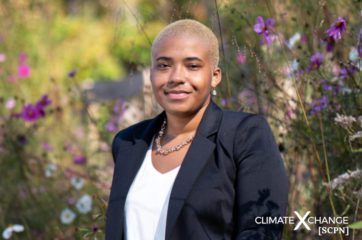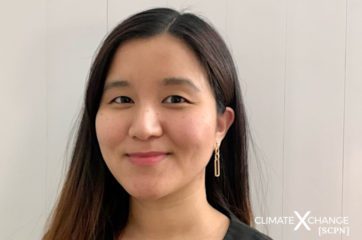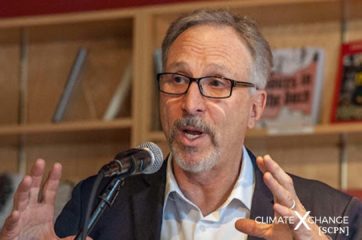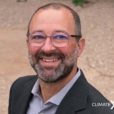All across the country, members of our State Carbon Pricing Network (SCPN) are fighting to make an impact on climate change in their communities. We have individuals in our Network from all 50 states, each experiencing climate change differently in their local areas and finding unique solutions to build resiliency efforts.
Joel Briscoe is a Democratic member of the Utah House of Representatives who represents District 25 in Salt Lake City. He’s the first state legislator in the US to ever introduce a bipartisan carbon pricing bill, and has championed carbon pricing in his state for the past few years. Briscoe graduated from the University of Utah and taught English, U.S. History, and Civics in secondary schools for twenty-six years, twenty-one of them at Bountiful High School. Briscoe served on the Salt Lake City Board of Education from 1998–2002, the last two years as the Board President. He also served as the chair of the East Central Community Council, a community council located between downtown Salt Lake and the University. In this capacity, Briscoe led community opposition to a proposal to install above-ground high voltage electrical transmission lines through neighborhood yards.

Noa Dalzell (ND): It’s great to have the chance to speak with you today, Representative Briscoe. I know there are a lot of urgent crises you are dealing with as an elected official, and I appreciate you taking a moment to talk. You’ve been a really engaged member of the SCPN for about a year now, and a climate leader for far longer. What brought you to this point, where climate change was one of your top priorities as a policymaker?

Joel Briscoe (JB): I determined a few years ago that I’m not going to be a legislator forever, and I don’t want to have any regrets. I don’t want to look back when I’m done and say, “I should’ve.” I didn’t think people would immediately roll over and say pricing carbon was a good idea, but you don’t know if you don’t have a conversation. You’ve got to have a conversation. I also think that the day will come when Congress will do something, and that’s the best way to do it, to have a national policy. But in the meantime, we need to have individuals running and trying to create the dialogue, and individual states can help prepare that way. Engaging everyone in the dialogue has lots of benefits.

ND: Absolutely. So, what made you want to go into public service in the first place? Can you tell us a little bit more about your journey?

JB: I was a public school teacher, I taught US history and the government. I only lived ten or twelve miles from the state’s capitol, and every legislative session, I’d take my students up to the State House, have them sit in on some committee hearings, watch some floor action. I also invited people running for office — mayors, city councilors — to come speak to my students about their paths.
One of the things I felt really strongly about was political participation. Today, you can register to vote online. But ten, fifteen years ago, you couldn’t register one. As a teacher, every year, I’d drive to the county clerk’s office to get voting registration forms, and have the school secretary print me out a list of all the students by their birthdays. I’d find out which juniors and seniors would be eligible to vote by the fall. I still remember one student who didn’t want to. I said, “okay, fine. I can’t force you, and I won’t.” About a week before the election, all of a sudden, he wanted to register, and he couldn’t. Today, as voting rights have expanded, he could go and file a provisional ballot and he could vote.
I did get a law to pass a few years ago that allowed seventeen year olds to vote in the primary if they are going to be 18 before the General Election. Utah became the 23rd state to allow that. That was important to me because research shows that the younger people are when they start participating politically, the more likely they are to continue voting for the rest of their lives.

ND: As a more progressive lawmaker in a state that does lean red, how have you managed to reach across the aisle and work with members of both political parties?

JB: I have Democratic colleagues who have friends in states that are predominantly Republican, and they don’t get any legislation passed. This work requires a lot of dialogue and relationship building. The bill I passed [in 2016] that gave seventeen year olds the right to vote, I tried it seven years ago and it didn’t go anywhere. When I testified in Committee, I had a Democrat on one side and a Republican on the other. I said, “I’m not doing this for any particular party — I’m doing this for seventeen year olds.”
You try to be bipartisan when you can be. In 2012, we formed a Clean Air Caucus, and today, that Caucus is made up of four Democrats and four Republicans. Sometimes, you just have to know that you’re going to be out there with an idea that’s not going to have a lot of traction. But, as I used to tell my students all the time when I was a high school debate teacher, there’s an awful lot of value to prep for your arguments and understand what the opposition will be. Knowing that there will be opposition — what can you do to defray that and bring people on board? The current political climate makes that difficult because so many things have been politicized.

ND: What are you anticipating for next session as it relates to climate policy in Utah?

JB: Well, the University of Utah Policy Group produced a document called the Utah Roadmap, and I’ve got a Republican friend in the legislature who told me has got a couple of bill files open, one of them to have Utah achieve 80% reduction in greenhouse gas emissions by 2050, and another that has some specific target of criteria air pollutants by 2050. It’s great to have a Republican run those — they can call him a RINO, I guess — but they can’t say, “We’ll it’s just a Democratic idea.
There’s a lot of things to work on. I’m pleased that we have a Republican Congressman in Utah, John Curtis, who does monthly Twitter climate chats. Utah Senator Mitt Romney has joined the bipartisan Climate Caucus in Congress, so we are starting to see some progress. In the state’s gubernatorial debate last week, three of the four candidates said they believe human activity is inducing climate change. Now we need to say, “okay, what are you going to do? Are you just going to admit it and do nothing about it, or what?”

ND: Given these examples of Republican leaders beginning to address and act on climate, are you hopeful that climate change will become less politicized and be addressed in a more bipartisan way?

JB: Certainly. I look at TCI and RGGI in the Northeast, I look at Governor Baker [in Massachusetts] and Governor Hogan [in Maryland], two Republicans. You’ve got a very significant part of the US economy in those programs, and it gives me hope. We’ve been talking a lot about Martin Luther King recently, and one of his six principles of non-violence protest is that you have to have hope for the future. Sometimes, the way we communicate about climate change is not helpful, and we help our opponents by saying that if we don’t do this by this time, we’re through. My motto is patience and persistence; we have to be patient, persistent, and we cannot quit.

ND: We’re in a unique moment in history, with the COVID-19 pandemic, these tragic instances of racism and subsequent widespread protests. How do those crises affect our ability to respond to the climate crisis?

JB: One of the issues in Utah is clean air; we sit on a mountain bowl, and so a lot of garbage that comes out of our cars and trucks gets trapped in the air. We just learned that we can do a lot of work by staying at home, and one of my hopes is that this coming winter, we’ll be able to, “Remember last year when we all stayed home for months? Can we do it for this week and not drive to work, and telecommute?” It will dramatically reduce the pollution we have in the air, it’s not inconsequential.
A lot of people were saying that COVID-19 is climate change on steroids, it’s climate change speeded up, and there are a lot of people doing work on how to talk about climate change, about what messages resonate. We do know that one thing that gets bipartisan support is investing in clean energy research, on how we can get cleaner, so maybe there are things we can build on and get everyone to agree on.

ND: Is that what makes you hopeful that we can combat this crisis?

JB: I never thought five years ago in Utah that I’d be sitting in the legislature, listening to my Republican colleagues explaining why we shouldn’t be able to dismiss a person from their job because they are LGBTQ+, but we got to that point. Every now and then, a switch flips on these things.
I don’t know what the silver bullet answer is to get people to care about climate. I read somewhere that for every new idea there are three stages. The first stage is, “That’s the stupidest thing I’ve ever heard, it will never work.” The second stage is, “Maybe it will work, but it’s still a dumb idea.” And the third stage is, “That’s the best idea I’ve ever heard and I told you so.” I hope we are starting to turn that corner, and sometimes, I think I can see the corner.

ND: Thanks so much, Representative. It’s been great learning more about your perspective and journey. Is there anything you want to say to close?

JB: I do want to give a shoutout to Climate XChange and the other groups who are putting their best efforts into raising awareness and education. I love the monthly webinars, I learned a ton in the transportation-focused one this week, and all of this helps me stay engaged.

ND: That’s the hope, that we can equip the people working on the front-lines of these issues with the tools and resources they need to succeed, and keep policymakers and advocates as informed as possible. So, it is so important to have people like you that remain so consistently engaged and committed to this work.

JB: Absolutely. If anyone has any great ideas on how to turn this corner, please send them my way!

